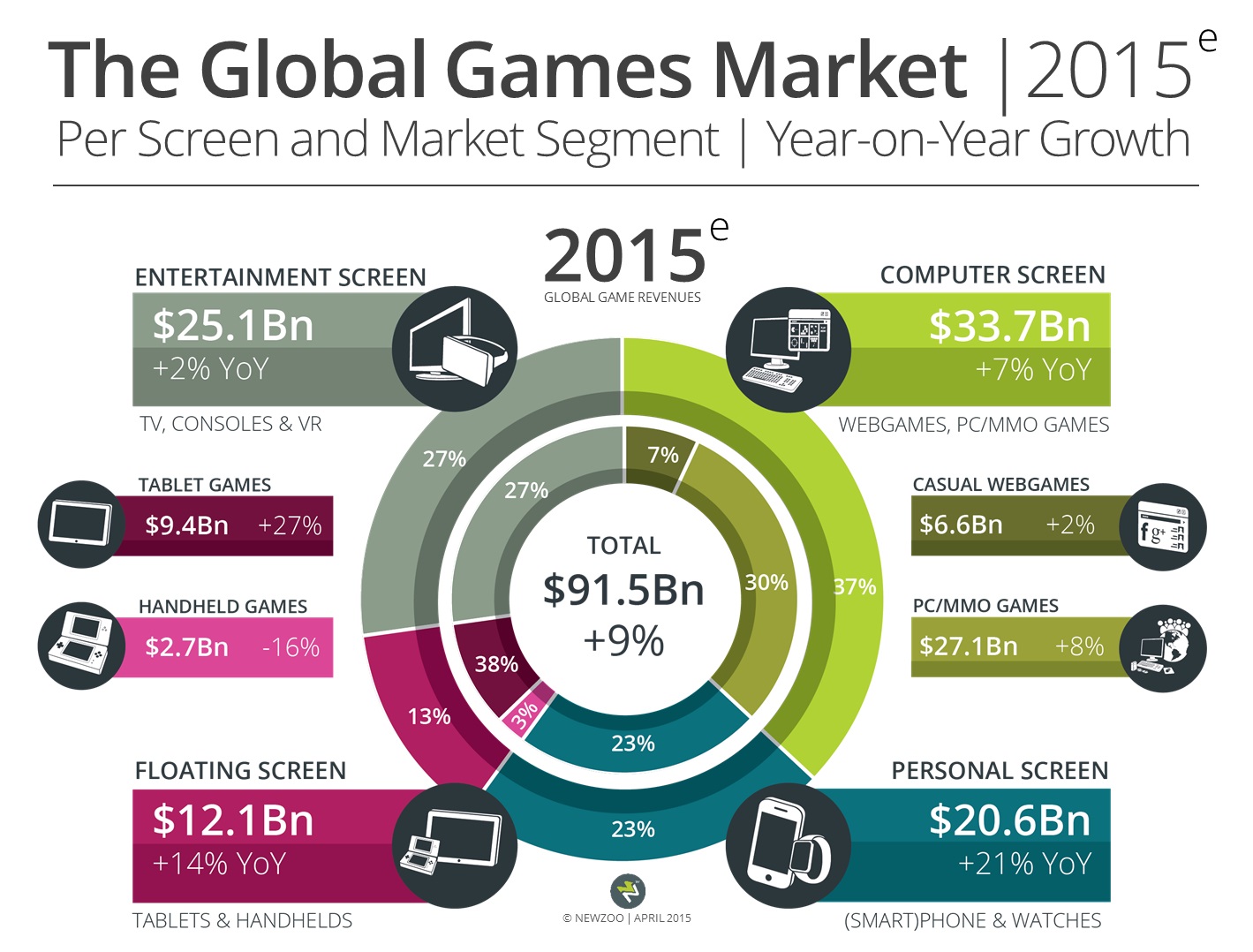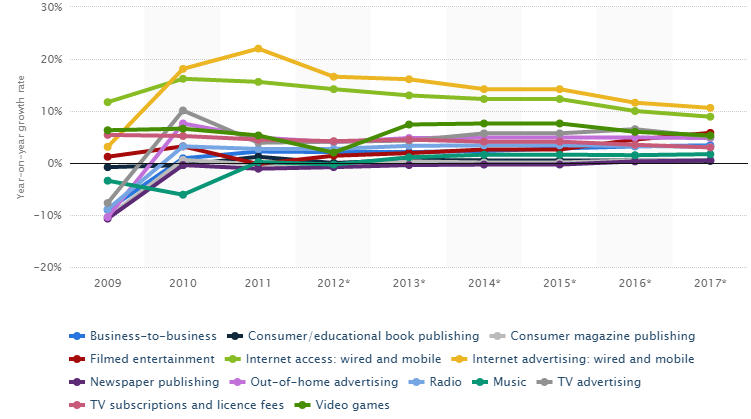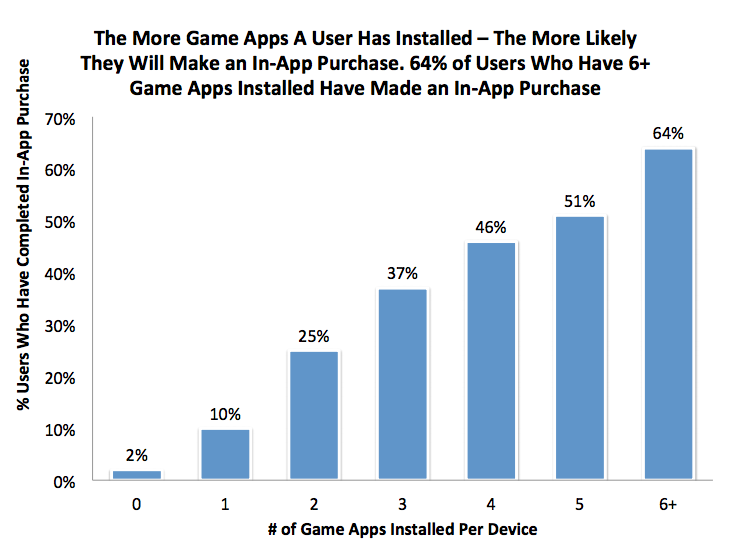Traditionally, gaming has been neglected by the mainstream media and has been treated like a foster brother of the entertainment industry. However, with global gaming revenues set to hit $91.5 billion in 2015, games are turning heads like never before. Couple that with a yearly growth rate of nearly 9.4%, higher than even the film industry, and one can see why gaming studios are the new Hollywood!
However, the change from niche to mainstream has come at a cost. The traditional pay structure for games has changed. The buy and play model has been cast aside and freemium has taken over the market as mobile gaming is all set to overthrow their console counterparts. Mobile games which are initially free to play have drawn in a large number of casual players who are just looking to have something simple and fun and the in-app purchases have raked in huge revenues. So is mobile gaming synonymous with modern gaming? The latest acquisition of King Studios (Developer of Candy Crush Saga) by Activision a major PC/Console game developer for a whopping $5.9 billion would seem to indicate in that direction.
Activision Acquires King, Goes Mobile
Activision Blizzard, maker of games such as “Call of Duty” and “Hearthstone” that are being featured in e-sport tournaments, have found that their age old console and PC games have not scaled that well with the casual gaming audience. That’s why you can probably see the move to mobile and with the recent acquisition of King studios Activision Blizzard is the first company to have a sizeable presence in both the mobile and traditional platforms.
This should work out excellently for King Studios as they have not been able to replicate the success of their first Candy Crush games in future releases. With a user base of more than 500 million users, Activision studios with its long heritage in running series like Call of Duty would be the perfect partner for King as they look to retain customers and help them grow on the success of Candy Crush.
Activision acquires Candy Crush maker King Digital Entertainment for $5.9B in the largest accidental in-app purchase in history.
— sean ? (@sean_a_rose) November 3, 2015
Skeptics, however, remain concerned if this is the right move for Activision Blizzard as similar one hit wonders like the developers of Angry Birds, Rovio are already in trouble. In fact, the above tweet sum all of the criticism up rather well.
Exploring The Power of The In-App-Purchase
We here at Dazeinfo, share a conflicting opinion, and we think that this is not only a very good deal but the first of many. In the next few years as gaming takes on center stage with e-sports becoming more common, we will find that more traditional PC and console gaming development companies will be looking to expand their markets with a strong presence on the mobile gaming platform. Mobile games operate on a freemium model where the initial game is free to use but to progress through the game you will need to periodically shell out money.
This is not a great concept for serious gamers who would rather pay upfront than continue paying for a game in small amounts throughout via micro-transactions. However, for casual players we find that this is the business model that encourages them to get involved more as a large payment upfront is a commitment to a game they are unwilling to make. In essence, the IAPs are here to stay, and below we try to establish a few points as to why they would be more prevalent in games in the future.
Mobile Gaming is Behind The Gaming Growth Spur
While PCs and consoles have been the mainstay of the market thus far, the latest data indicates that time is changing with smartphone and tablet gaming picking up more pace and achieving a higher growth rate than other platforms. Revenues from tablets are expected to grow by 27% YoY to $9.4 billion in 2015, with smartphone and watch revenues jumping 21% to $20.6 billion. Taking a look at the top two grossing games in both mobile platforms of Android and iOS, we find that the spot is taken by Candy Crush game. Not only that, if we go further down the list we can find that Clash of Clans is also featured on the list. What do all these games have in common? In-app purchases are their only source of revenue.
Freemium Models Enlarge The Market
The surge of gaming ahead of all other traditional media forms is because of their sudden growth of market share. The one thing common about the top 3 lines in the graph is their platform of availability- the smartphone and tablet.
Traditionally game studios like Activision Blizzard have developed immersive games like Call of Duty which requires an expensive console or PC and a lot of time to be invested into the game. Casual gamers shy away from a large initial investment both in terms of hardware as well as the game itself. This is where King shines as Candy Crush excels in being a time-killing game that requires no commitment from the casual player either in terms of money or time. With this acquisition, Activision has made its foray into the market of mobile gamers, a realm where AAA titles of the gaming world hold no significance.
Part of the reason behind Candy Crush being so massively successful has been its ability to draw in a diverse audience of casual gamers who mostly play to pass the time while they travel. This has also led to it being very popular among women, a market yet mostly untouched by Activision (and most PC game manufacturers) due to the nature of the games they produce. This is possible because of In-App-Purchases as the free no strings attached price tag draws people into the game and then the pay to win mechanics take over. Unfortunately as the casual gamer is much larger as a demographic versus the dedicated gamer, in-game purchases are here to stay, despite their protests.
Looking Into The Future
The above graph depicts as the mobile gaming industry matures and the quality and number of games in a particular genre increases, fans of the genre will download more games which will lead to them being more inclined towards making an in-app purchase.While many long-time gamers will argue that in-app-purchases are just a trend and will pass away, the numbers speak otherwise. Mobile gaming is set to overtake the traditional gaming mediums and the revenue from them are expected to increase by 50% by 2019. Added to that is the fact that the development of a mobile game costs a significantly less amount than most PC games and we can see why the future will herald the victory of mobile.
Looking into the annals of gaming history, one can see that PC gaming is has had in-app purchases for ages in lieu of DLC and packs and special weapons. With newer announcements in PC-centric games like Metal Gear Solid 5 taking the route of microtransactions as well, we can see that the trend is spreading, and there is nothing we can do about it. In-app purchases are here to stay; one can only hope that with time, the developers learn to do them right because if money paves the path to victory in video games, one can foretell an early doom for the industry.





